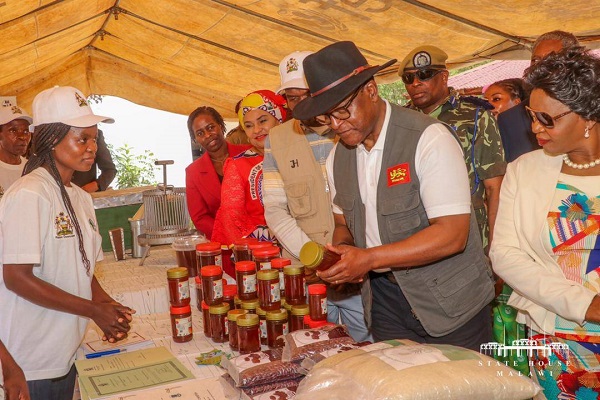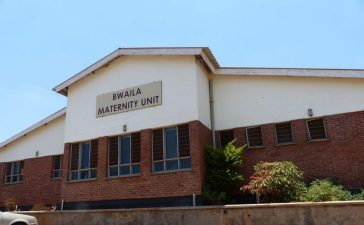President Lazarus McCarthy Chakwera on Friday officially inaugurated the Linga Mega Farm in Nkhata Bay. This marks a significant milestone in his ambitious initiative to promote large-scale farming. The concept of the mega farm has been a central focus of President Chakwera’s agenda since his pre-election campaign.
It aligns with his broader vision of alleviating hunger and poverty, not only at the individual and family level, but also on a national scale. This vision is in harmony with Sustainable Development Goal number one, which aims to eradicate extreme poverty and hunger, as well as Malawi Vision 2063’s first pillar, emphasizing the enhancement of agricultural productivity and commercialization.
“I have launched the Linga Mega Farm in Nkhata Bay where over 800 rice and beans farmers have already started irrigation farming on a 450-hectare land. I am glad to learn that at full capacity, the farm will utilise close to 1,500 hectares as part of the initiative,” said Chakwera.
He added:
“I am also delighted that the scheme- in complement with other support initiatives such as fisheries, honey production and livestock farming – has created hundreds of jobs to our youth in the area.
This exciting development confirms my administration’s conviction that mega farms are the best approach in commercialising agricultural production in the country.”
The Mega Farm concept primarily aims to establish extensive production units in a single location, equipped with all essential resources such as manpower, financial capital, machinery, and infrastructure, spanning from land preparation to marketing.
The central element of the Linga Mega Farm is its irrigation system, which aids more than 800 small-scale farmers in cultivating rice and beans. Presently, this scheme encompasses 450 hectares and is projected to expand to 500 hectares by year-end. At full capacity, the irrigation system has the potential to cover an impressive 2500 hectares. In the near future, the mega farm will also incorporate agro-processing facilities to enhance the value of the farmers’ produce.
Furthermore, there is an ongoing training program for over 300 entrepreneurs at Lilongwe University of Agriculture and Natural Resources. This training equips them with the necessary technical knowledge to produce market-ready products effectively.













